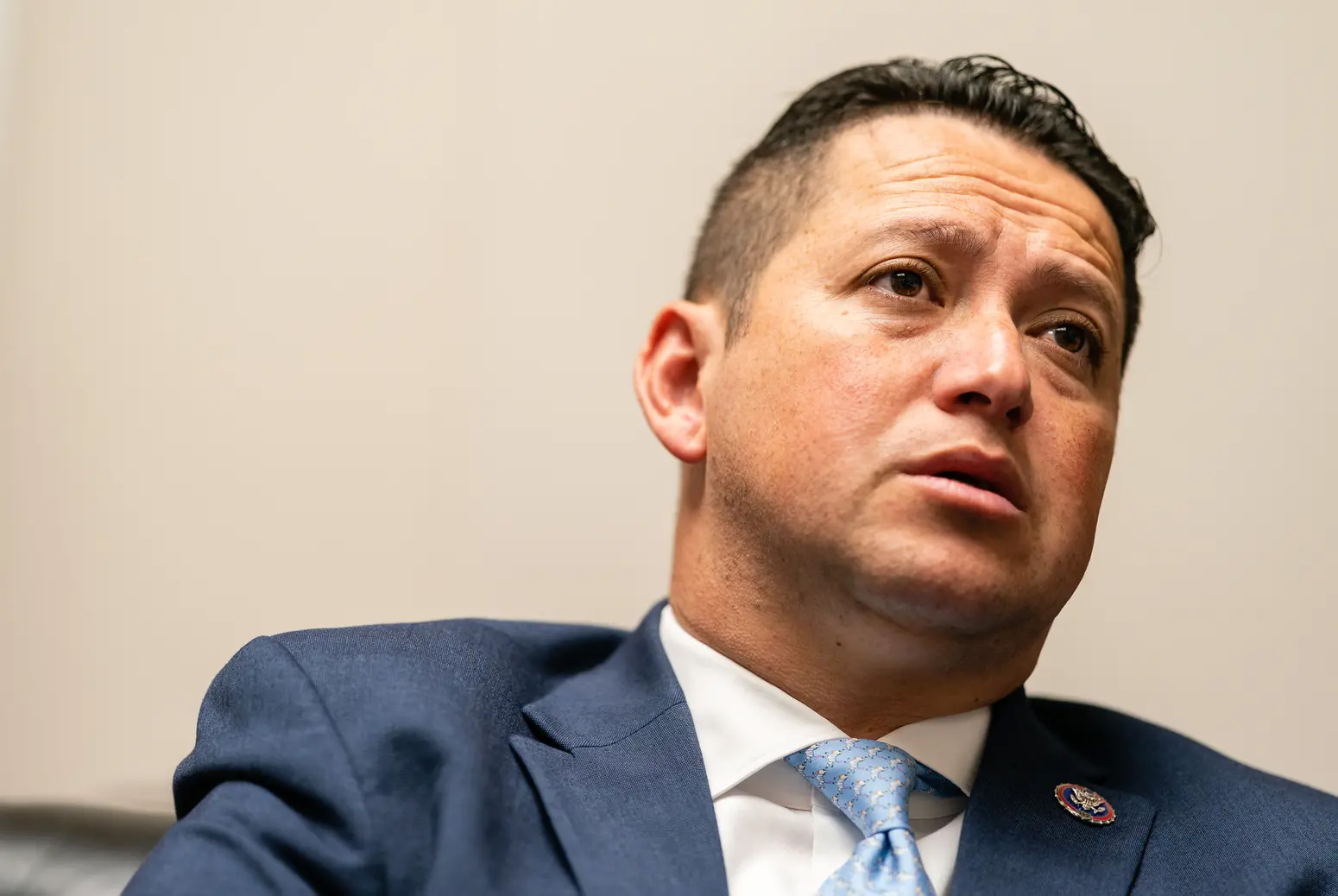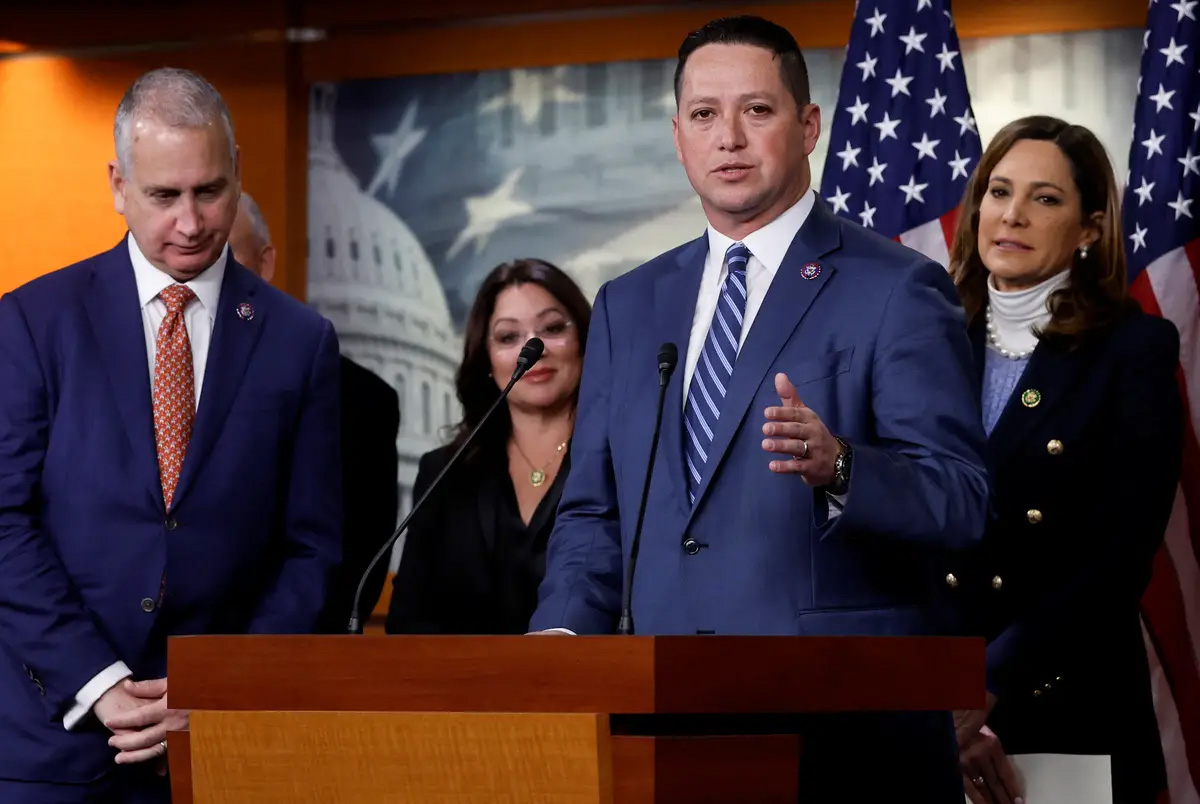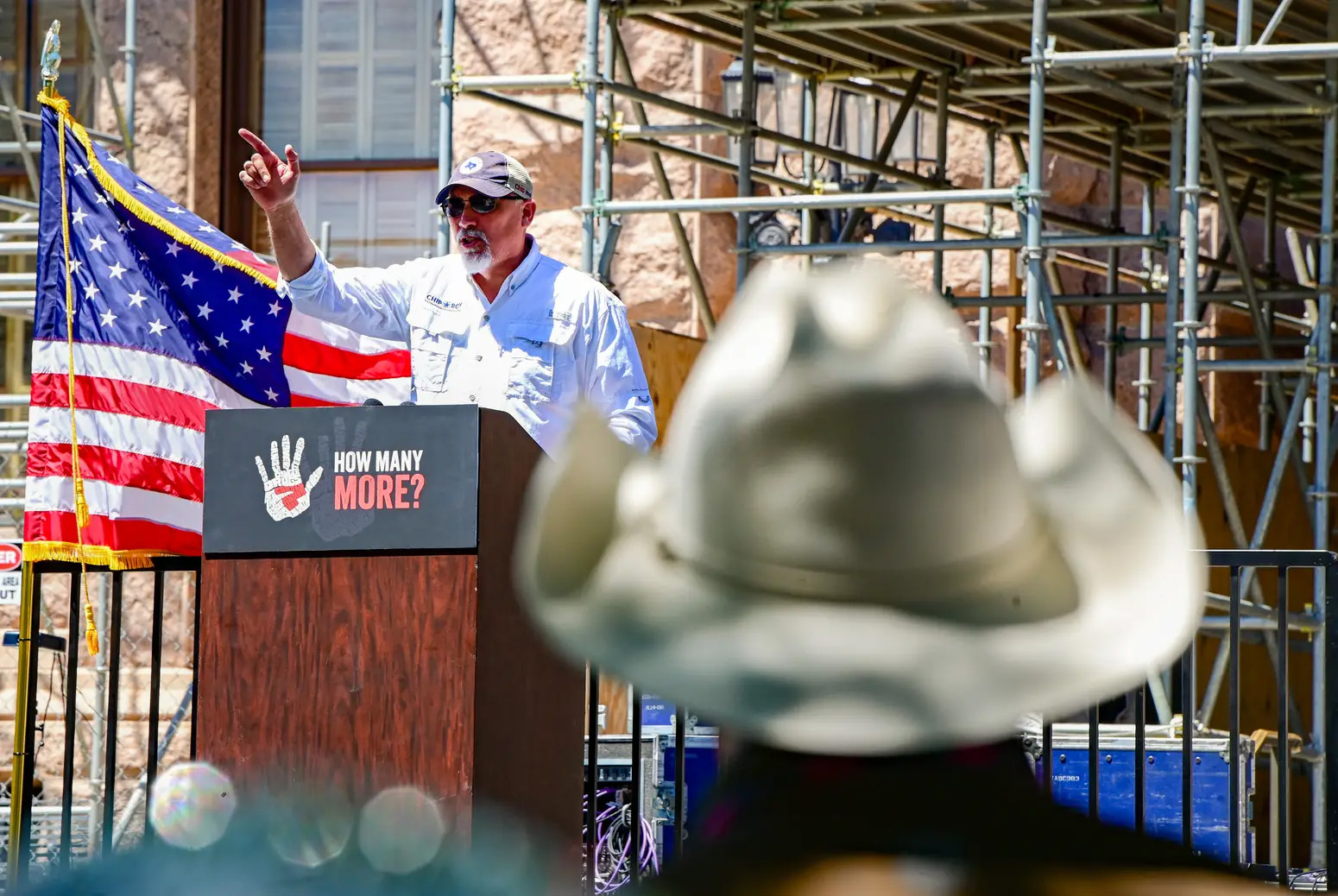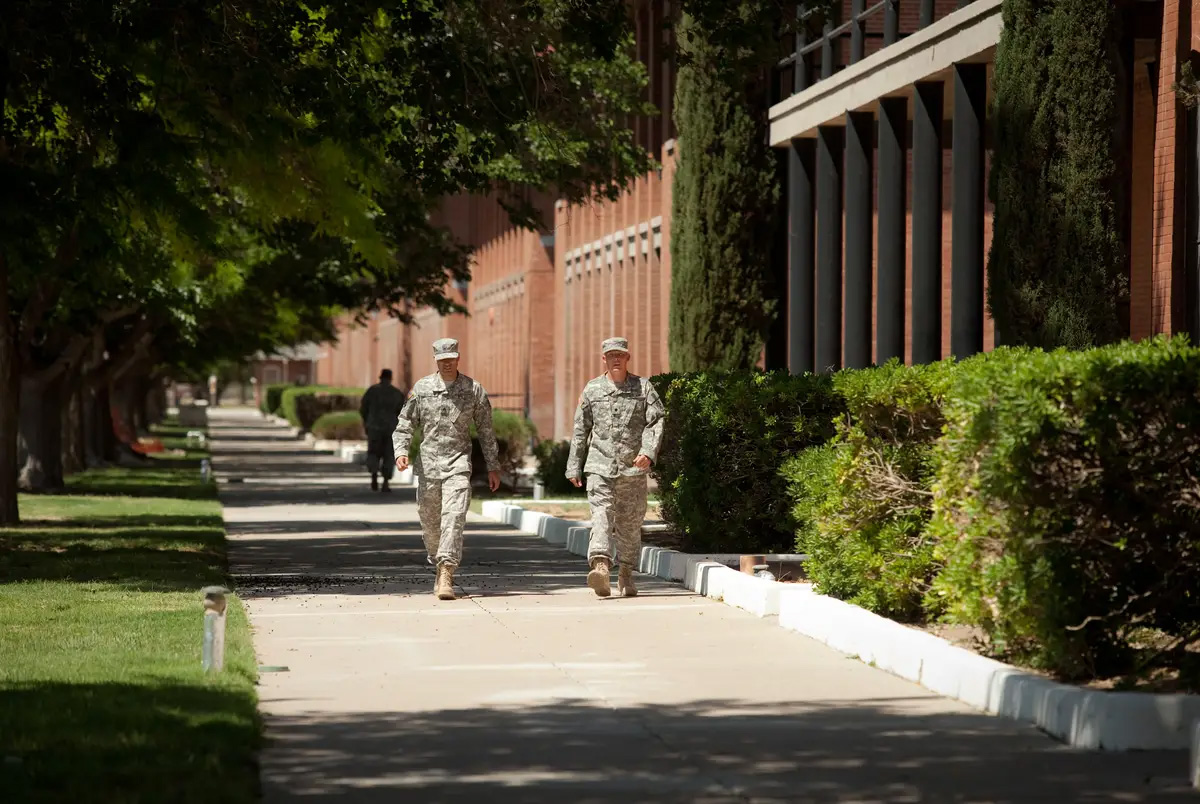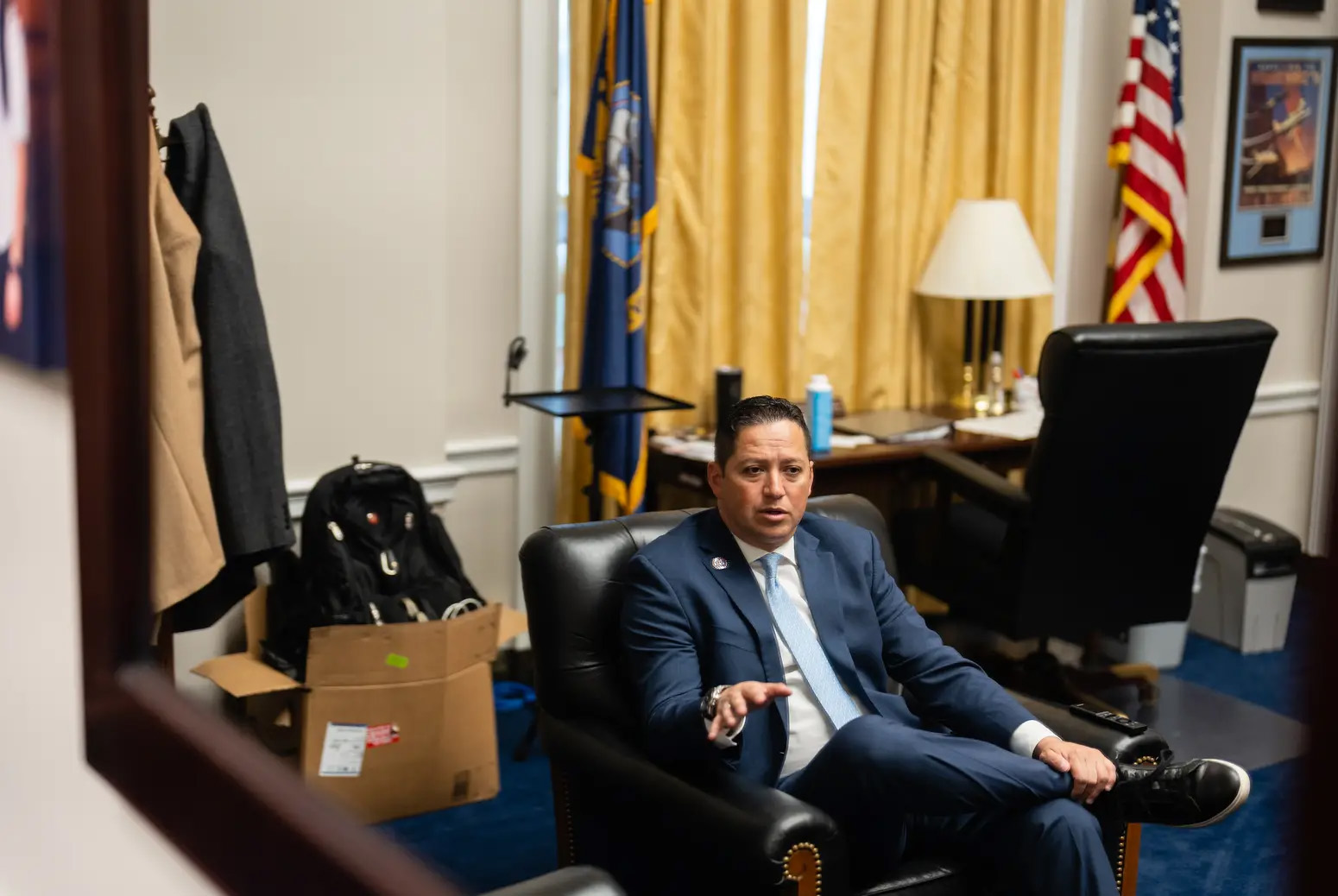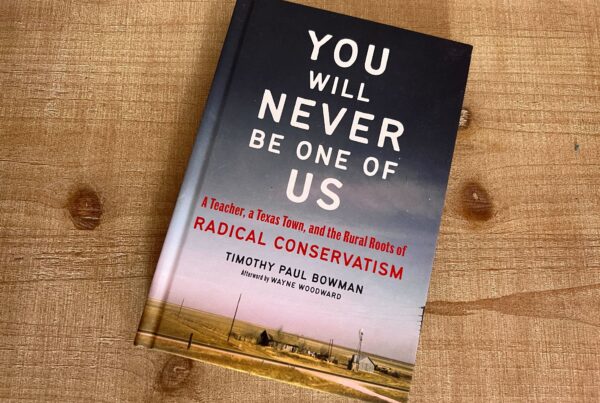From the Texas Tribune:
WASHINGTON — U.S. Rep. Tony Gonzales wants to be a pragmatic bridge builder. That hasn’t stopped him from burning some along the way.
The second-term Republican is irritating members of his own party with an ongoing feud with Rep. Chip Roy on border policy. He’s annoyed Republican campaign arms eager to expand the party’s presence in South Texas by chumming it up with one of their targeted Democrats. He peeved El Paso residents by lobbying hard to include more of the city in his sprawling district.
His own party censured him this year, opening the door to a primary challenge from his right.
Through it all, Gonzales insists he doesn’t care about the haters and that what’s important is the work he’s getting done. He says he acts out of pragmatism, not antagonism, and distances himself from House members who vote “no” just to burn things down or gain attention.
His approach has yielded results. He’s made material contributions to some of his party’s key border initiatives that are slated to hit the House floor this month, hoping the effort will increase the legislation’s prospects in the Democratic-controlled Senate.
“I’m a retired Navy master chief. That’s the highest enlisted rank. What does that mean? That means I don’t take any shit from anybody,” Gonzales said during a recent interview in his spartan Washington office. In the background, a television played “Mr. Smith Goes to Washington” on an endless loop to give him, as he put it, “the energy to raise hell in this place.”
Raising hell, however, has had consequences. Gonzales admits that the censure motion will mean diverting resources and attention toward a reelection campaign, even though his new district was drawn in 2021 to be more favorable to him.
He’s also shown a willingness to bite back at those who have crossed him — and isn’t shy about saying so.
“I think it’s very clear for anybody, I’m not the one to mess with,” he said, his voice rising occasionally to hammer the point. “I’m a better ally than I am an enemy. And I think, more and more, people are starting to realize that for sure.”
A “workhorse,” not a show horse
Gonzales was never going to be a Republican yes man. His district, which stretches from San Antonio to El Paso and takes eight hours to drive across, was a competitive battleground when he was first elected in 2020. He’s been pragmatic in his relationships and aggressive in his fundraising, collecting $1.3 million in this year’s first quarter despite the censure and four announced primary challengers from the right.
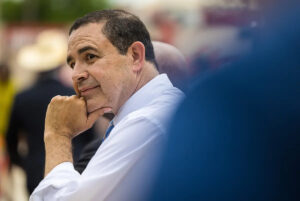
U.S. Rep. Henry Cuellar, D-Laredo, shown at a Get Out the Vote rally in San Antonio on May 4, 2022, has worked closely with U.S. Rep. Tony Gonzales on border issues. Chris Stokes for The Texas Tribune
Gonzales is famously close to U.S. Rep. Henry Cuellar, the longtime Democratic centrist from a neighboring district. The two often appear side by side in television interviews and have been close partners on border issues, with their districts comprising the overwhelming majority of the Texas-Mexico border.
Cuellar, who serves with Gonzales on the House Appropriations Committee, said Gonzales has a measured approach to legislative work and has emerged as his closest Republican ally on border issues.
“His thought is — ‘How do we make things work?’ — instead of just talking about how to blow things up. That’s a big difference,” Cuellar said of Gonzales.
Gonzales has also built bridges into the upper chamber, communicating weekly with fellow iconoclast Sen. Kyrsten Sinema, the Arizona independent who defected from the Democratic Party late last year.
Sinema and Gonzales, who initially bonded over border legislation they co-authored in 2021, have become key partners in trying to make progress on some of Congress’ thorniest issues.
Sinema considered Gonzales an essential partner as she worked with a bipartisan group of senators, including Sen. John Cornyn of Texas, to get gun safety legislation passed last year. The Bipartisan Safer Communities Act, which passed in the aftermath of the Robb Elementary School shooting in Gonzales’ district, has brought hundreds of thousands of federal dollars to Uvalde in the past year. It was the first federal gun safety bill to be signed into law in nearly 30 years.
“In D.C., there’s a whole lot of show horses, and there aren’t very many workhorses,” Sinema said. “And gosh, Tony is a great workhorse. He really is just focused on getting the work done. And he doesn’t get distracted by, you know, people who might be poking at him or attacking him.”
Gonzales was the only Texas Republican in the U.S. House to vote for the gun bill — a move that played a major role in his censure by the state Republican Party in March.
Gonzales was the first House member Sinema contacted as she worked with a similar bipartisan group of senators to create a border and immigration reform package late last year — another issue that has proven elusive to Congress for decades. Sinema and Gonzales said they are focused on legislation that can pass both a Democratic-controlled Senate and a Republican-controlled House, and both have been trying to manage priorities to ensure the final text retains bipartisan backing.
“For many, it’s mission accomplished when you get to 218 [votes] in the House. For me, it’s only a start when you get to 218,” Gonzales said.
Gonzales sits on the House Homeland Security Committee, which advanced the Border Reinforcement Act last month. The bill would resume construction of a border wall launched under President Donald Trump, create new transparency standards for the Department of Homeland Security and increase funding for the Border Patrol and technology infrastructure.
The legislation includes Gonzales’ Security First Act, which would increase federal grants to law enforcement along the border. Gonzales also added language to increase Border Patrol pay by 14% as well as label drug cartels as terrorist organizations, an effort that several other Republicans, including Roy from Texas, have also floated.
“He has been the go-to guy for all of us,” said Rep. Mario Diaz-Balart, a Florida Republican who has worked on immigration reform several times during his 20 years in Congress. “All of us that are involved in this issue rely on Tony because we trust Tony to make sure that it’s a bill that secures the border, protects children and protects the communities around the border.”


